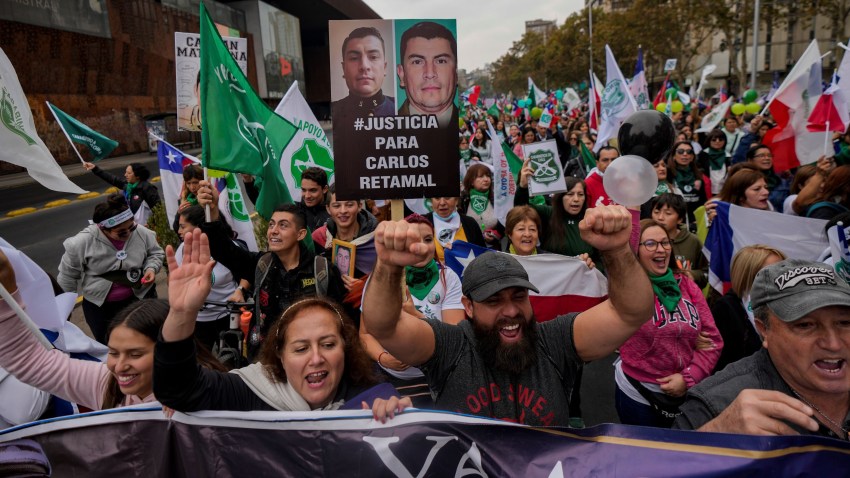Chilean President Gabriel Boric is anxious to convince voters he is serious about combatting a surge in violent crime, but his administration is divided over how to tackle it. After three police officers were slain in a span of 23 days since mid-March, Boric is now facing a political backlash.
As one of South America’s “new Pink Tide” of leftist leaders who have risen to power in recent years, the 37-year-old Boric is admired abroad, earning a Time Magazine cover last August that underscored his popularity overseas. But more than a year into his four-year term, his sweeping social and economic reforms have mostly faltered. Two-thirds of Chileans disapprove of his presidency, and 72 percent say the copper-rich country is on the wrong track.
Coming into this year, Boric hoped to reassert his progressive credentials with high-profile commemorations of Chile’s former President Salvador Allende, the socialist icon who was overthrown in a U.S.-backed military coup 50 years ago. Instead, his domestic agenda has been sidetracked by spiraling crime. And Boric, a former student activist beholden to far-left allies in his ruling alliance, lacks the credibility to fight it.

